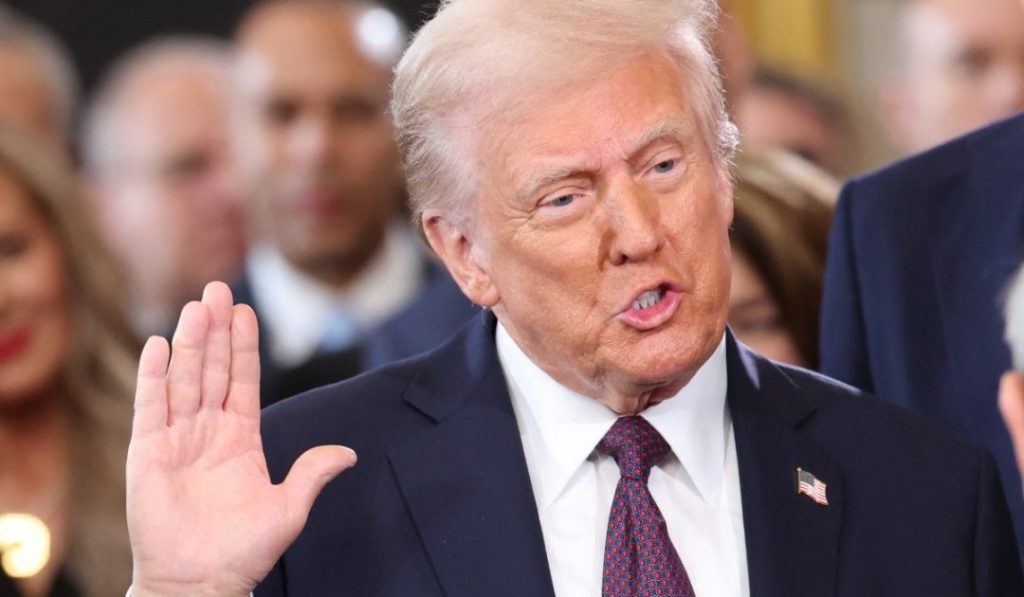The US Department of Homeland Security (DHS) is currently reviewing a proposal for a reality television show centered around immigrants competing for American citizenship. This unconventional concept, pitched by Canadian-American Rob Worsoff, has yet to receive official approval or rejection from the department. While DHS Assistant Secretary for Public Affairs Tricia McLaughlin emphasized the department’s openness to innovative ideas that promote patriotism and civic duty, the proposal has sparked considerable discussion and raised numerous questions regarding its appropriateness and potential impact.
The proposed show, as detailed in a 36-page slide deck reviewed by the Wall Street Journal, envisions a competition format where immigrants demonstrate their “Americanness” through various challenges. These challenges, reminiscent of historical events and industrial milestones, could range from gold panning reminiscent of the Gold Rush era to assembling the chassis of a Model T Ford, showcasing both individual skills and teamwork. Following a symbolic arrival at Ellis Island, the traditional entry point for immigrants, contestants would face elimination in each one-hour episode. The ultimate prize, presumably, would be expedited acquisition of American citizenship. Worsoff has emphatically denied comparisons to dystopian narratives like “The Hunger Games,” stressing that losing contestants would not face deportation.
The timing of this proposal coincides with the Trump administration’s ongoing efforts to restrict immigration, including the termination of Temporary Protected Status (TPS) for several groups of immigrants. TPS, a legal provision allowing foreign citizens to remain in the US due to unsafe conditions in their home countries, has been systematically rolled back under the current administration, affecting individuals from nations facing war, natural disasters, or other extraordinary circumstances. This policy shift impacts citizens of countries like Afghanistan, Haiti, and Venezuela, reflecting the administration’s broader crackdown on immigration.
This crackdown, orchestrated by DHS, involves increased immigration raids, arrests, and deportations, significantly impacting immigrant communities. The juxtaposition of the proposed reality show with these ongoing enforcement actions creates a stark contrast, raising questions about the underlying message being conveyed. Critics argue that the show could trivialize the complexities of immigration, reducing the pursuit of citizenship to a televised spectacle. Furthermore, concerns have been raised about the potential for exploitation and the reinforcement of stereotypes, particularly in a climate of heightened anti-immigrant sentiment.
Proponents of the show, however, might argue that it offers a unique platform to highlight the contributions and aspirations of immigrants, showcasing their dedication to becoming American citizens. They could also posit that the competition format provides an engaging way to educate the public about civic values and the naturalization process. The challenges themselves, while potentially symbolic, could be interpreted as demonstrations of resilience, ingenuity, and a willingness to contribute to American society.
Despite these potential arguments, the proposed reality show faces significant ethical and practical challenges. The selection criteria for contestants, the judging process, and the overall portrayal of immigrants will be subject to intense scrutiny. Concerns about fairness, transparency, and the potential for manipulation will need to be addressed. Furthermore, the show’s impact on public perception of immigration and its potential to either humanize or further marginalize immigrant communities remains a crucial consideration. Ultimately, the decision to proceed with this project rests with DHS, a decision that will undoubtedly have significant implications for the ongoing national dialogue surrounding immigration.


